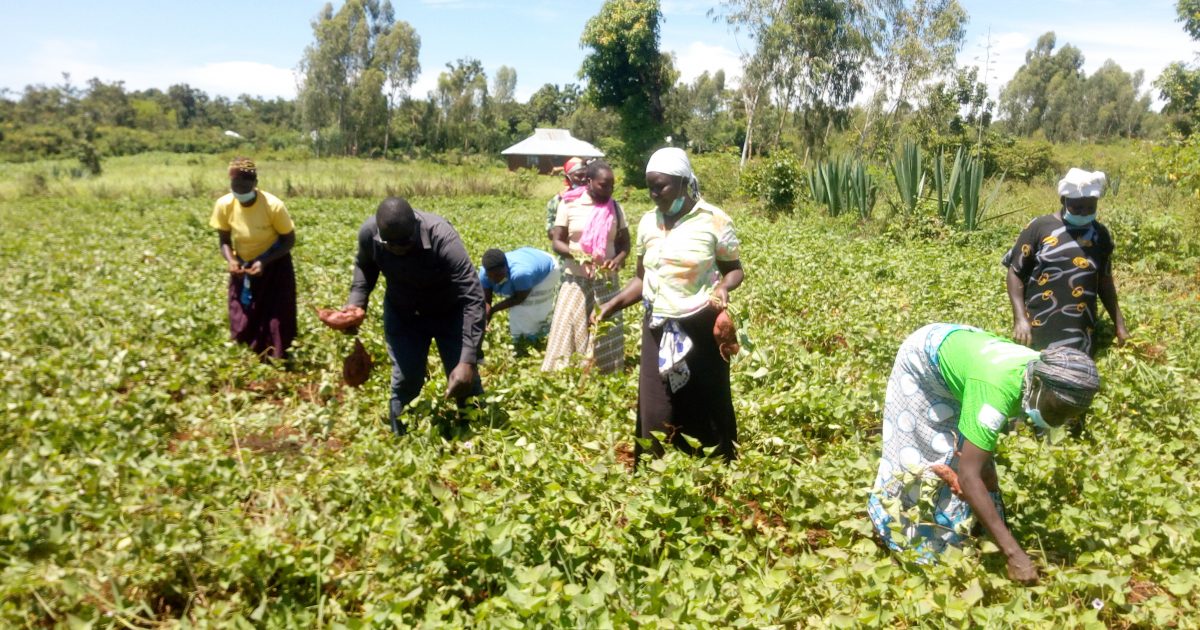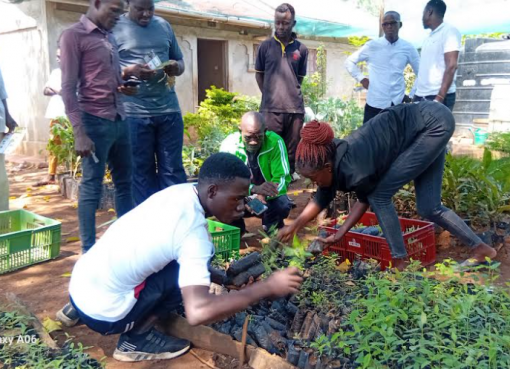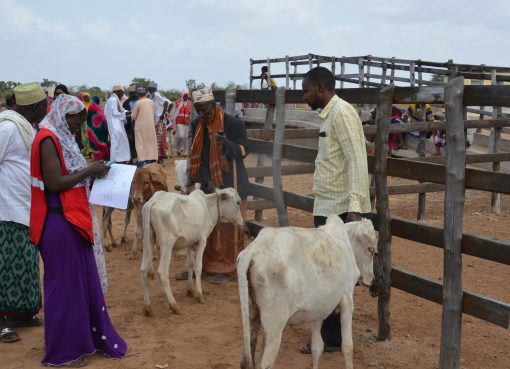Siaya County has over the years registered high HIV and poverty indexes in the country but a group of women are slowly spearheading a change into the county’s health and economic landscape through Agriculture.
Christened Ayila Moyie, the group composed of twenty five women who have been serving as Community Health Volunteers (CHVs) since 2013, has gone to tilling land in addition to moving door to door with their health advocacy messages to make a difference.
The CHVs who have embraced agriculture are using one stone to kill two birds by using sweet potato farming to fight poverty and malnutrition among people living with HIV.
When the women group from North Sakwa ward in Bondo Sub County ventured into sweet potatoes farming in 2018, they had one goal in mind. To provide balanced and wholesome nutrition for children under their care who were on anti-retroviral (ARVs) drugs.
Three years down the line, things have become “sweeter” and future seems brighter with the production focus expanding from providing nutritional support to selling the excess produce to improve their own living standards and that of Orphan and vulnerable children (OVCs) under their care.

Ayila Moyie has more than 1500 (OVCs) under their care, 307 of whom are living positively and are in need of nutritional support.
Armed with training on sweet potato farming from the department of agriculture and other non-state partners like the German agency GIZ, the group has not only been able to achieve its goal but is also positively changing perception of the locals on sweet potato farming from a mere substance plant to a cash crop.
Mary Ndire, the lead CHV at Ayila Moyie group discloses that a baseline survey conducted by a non-state partner ARMUT in 2013 revealed that OVCs in the area were malnourished and a good number could not have three meals a day to support their conditions.
“Most of our OVC who are on ARV did not have food. Some were having a single meal or at best two. As caregivers, we had to ensure that the ones on ARVs not only adhere to drugs but also eat a balanced diet which was a tall order,” Ndire stated.
Proper nutrition is an important element in the management of HIV patients’ immune system that serves to keep the viral load low.
She however said that the introduction of sweet potato farming in the area aimed at meeting nutritional needs of the OVCs has been a game changer in HIV management for those OVCs on ARTs.
“At the beginning it was very difficult, most of these children had very high viral load but because of drug adherence and better nutritional value most of them have low viral load,” Ndire added.
The CHV who herself is in charge of fifty-one OVCs says nutritional value in the Kabode variety of sweet potato has been key in boosting their OVCs immunity adding that weather conditions in the area is also favorable to potato growing more than staple crops like maize and millet.
The group boasts of over ten acres of land collectively under sweet potatoes where they have been able to harvest over twenty tones of potatoes annually in the last three years for subsistence use and for the local market.
North Sakwa Ward Agricultural extension officer Mr Jackson Achuti explains that the group grows Nyamnyekera, Ken Spot 1 and Kabode varieties to support their activities.
Achuti disclosed that the three varieties are drought tolerant, have fast maturity and give high yields in climatic conditions of Siaya County.
He further explains that the Kabode variety is most preferred by the groups because it is rich in iron, potassium and phosphorus which are good for the immunity of children under their care.
The agricultural officer explains that due to the success of the group, the sweet potatoes farming initiative has been cascaded down to Nyabenge, Stars of the Lake and Maseno farmers’ groups in the region.
Achuti said that besides producing for the nutritional purposes, the group through the help of a non-state partner has been able to market its produce both locally within the county and outside the county.
He disclosed that given its climatic conditions, Siaya County has the potential of producing about 1000 tons of potatoes annually that would earn farmers better returns on their investments.
Achuti observed that there is little wastage in potato farming and a group like Ayila Moyie has been earning money from selling potato vines to other farmers, using rotten potatoes in the farms to produce animal feed which is sold in local markets besides selling the main crop.
“Sweet potato farmers get maximum value for their crops. Nothing goes to waste from vines, to crops infested by insects everything has a use. This has been made possible by adopting value addition techniques,” Achuti states.
Benta Anyango, Ayila Moyie CHV in charge of the potato farming project describes how sweet potato farming has benefited them with CHVs now having the ability to borrow loans to educate their own children.
“We sell our produce collectively to have better bargaining power but individually we have records of what each one of us has produced in their farms. Whatever profit is made by the group is saved and members are allowed to borrow. This has enabled most of us who are widows to take our own children to school.” Anyango said.
Anyango discloses that the group has been making other products such as Chips, cakes, crisps, mandazis and porridge from potato flour which are sold to bring-in additional profit for the group.
She further adds that through the department of agriculture from a partner known as REFSO, the group has been able to acquire a machine that crushes spoilt potatoes that is used to make animal feeds.

Anyango says the living standards of groups members has significantly improved through engagement in potato farming and value addition adding that the plight of OVCs in North Sakwa ward are now in the safe hands of empowered CHV potato farmers.
Acting North Sakwa chief Philip Chunga expressed optimism that sweet potato farming in the area would change the lives of community members.
Chunga said that as local administrators they have encouraged farmers in the region to diversify crop production by venturing into sweet potato farming with the view of addressing food security. “As administrators we have a duty to ensure that our people engage in food production activities so that they do not go hungry. We encourage our people not to rely on maize only but to diversify into sweet potato farming for better returns.
By Brian Ondeng’





